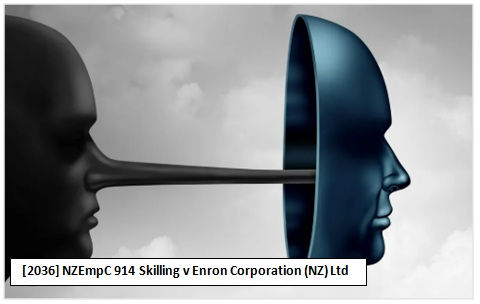Judge Beck the first in NZ to use previously taboo term “SLAPP” – by Tristam Price
- Apr 13, 2023
- 4 min read
Updated: Apr 20, 2023

SLAPPs, or strategic litigation against public participation, are retaliatory proceedings described by Wikipedia as “intended to censor, intimidate, and silence critics by burdening them with the cost of a legal defense until they abandon their criticism or opposition. In a typical SLAPP, the plaintiff does not normally expect to win the lawsuit. The plaintiff's goals are accomplished if the defendant succumbs to fear, intimidation, mounting legal costs, or simple exhaustion and abandons the criticism.”
Approximately 30 of the 50 American States have anti-SLAPP legislation, and in the United Kingdom the Solicitors Regulation Authority recently issued a warning notice on abuses of the court process through SLAPPs: SRA | Strategic Lawsuits against Public Participation (SLAPPs) | Solicitors Regulation Authority. In lay terms, bringing a SLAPP is playing dirty. While we are unaware of any significant anti-SLAPP lobbying in New Zealand, a Google search indicates a lobbying presence in many other jurisdictions.
Hamilton employment advocate Allan Halse, who has been targeted with several SLAPPs, was in the Employment Court on 10 February applying for a stay of a costs award.
The party pursuing the costs award is now the country’s largest employer, Te Whatu Ora (Health NZ), which in mid-2022 inherited proceedings brought by the former Bay of Plenty District Health Board (BOP DHB) in December 2018. Te Whatu Ora had succeeded in having Halse’s application for judicial review of certain directions of the Employment Relations Authority (ERA) struck out, and normally the successful party is entitled to a contribution towards its legal costs.
We believe those proceedings against Halse and his former client Ana Shaw to be bogus, and weaponisation of costs orders is simply one component of those bogus proceedings. In the background, Shaw, who came from South Africa in 2010 to take up a position as a cardiac physiologist, was dismissed in 2015 for reporting fraud to the “wrong” manager and raised a personal grievance, challenging her dismissal all the way to the Supreme Court, unsuccessfully.
The Supreme Court’s decision in late 2022 brought to an end Shaw’s claim against BOP DHB, which by then had been absorbed by Te Whatu Ora, yet surprisingly Te Whatu Ora are still pursuing the retaliatory proceedings against Shaw, Halse, and Halse’s company Culturesafe NZ Ltd (in liquidation).
Application to stay costs order
Judge Kathryn Beck declined a stay of the costs order, noting that Halse had not met a deadline for filing submissions. I was at the hearing, and a brief phone call to Halse confirmed what I suspected - due to his workload he simply didn’t have the capacity for the huge job of preparing certain submissions to Court of Appeal, that were relevant to his application to the Employment Court for a stay of costs. As the Wikipedia definition of a SLAPP mentions, forcing an opponent into a state of exhaustion is one of the tricks of lawyers who are prepared to take advantage of our legal system’s avoidance of discussing the negative effects of SLAPPs, let alone the lack of anti-SLAPP legislation. While the decision is not of great interest in the context of proceedings that by now very much zombified, paragraphs 7 and 17 explicitly mention the term SLAPP attributed to the proceedings brought by BOP DHB:
Previously we’ve seen a tentative reference to SLAPPs by Judge Corkill:
[15] Next, [Halse] says that there is a public concern over what he described as the “aggressive use of baseless proceedings”. After commenting on what he believes the DHB’s motivation is in bringing the proceeding, reference is made to an overseas phenomena of “strategic litigation against public participation” which is outlawed, he says, because it gives wealthy parties an advantage by exhausting the resources of less wealthy parties.
However, Judge Beck’s reference to a SLAPP is more explicit, and may have emboldened Natalie Akoorie to use the term in a non-paywalled Herald article a few days later, the first mainstream reporter to do so, albeit in a different context (an earlier article by the National Business Review is paywalled).
Why do we think this is a big deal? Leighton Associates would not exist but for a SLAPP, with highly aggravating features, against a lawyer in 2017. But apart from the two Employment Court decisions we’ve linked to, the internationally recognised term “SLAPP”, long considered so contemptuous of the party (and its counsel) bringing the retaliatory proceedings that it is probably quite an effective deterrent, is nowhere to be found in NZ-originated public documents prior to 2023.
We don’t know why – maybe some weird evangelising at CPD seminars over the years has applied some kind of taboo around the use of the term SLAPP and anyone who uses it should be ostracised? If that’s the case, then perhaps Judge Beck’s inclusion of the term in the Employment Court’s 4 April judgment could be considered courageous.
As to the SLAPP itself, the BOP DHB’s Amended Statement of Claim dated 14 June 2022 is here, and its lack of substance has gradually led to shift in strategy to the weaponisation of legal costs.
Let’s break this down. Ana Shaw (and her then advocate) were dragged through 3.5 years of bogus retaliatory proceedings by BOP DHB followed by 9 months by its successor. Publicity around that may harm Te Whatu Ora’s ability to compete with other countries for opportunities to hire much-needed medical professionals, and we believe that a public apology to Shaw may go some way to mitigate that situation at no discernable cost to the taxpayer.




Comments